Are you navigating the complex world of class certification appeals? It can feel overwhelming, but understanding the process is crucial to securing a fair outcome for your case. In this article, we'll break down the essential components of a strong class certification appeal letter, providing you with practical tips and a template to follow. Ready to dive in and empower yourself with this knowledge? Let's get started!

Clear subject and purpose
The class certification appeal process involves meticulous extraction of key elements from the original class action case. Jurisdictions, such as New York and California, have specific procedural requirements for appeals. In this context, the appellate court reviews the lower court's decision regarding class certification based on factors such as Rule 23 of the Federal Rules of Civil Procedure. This rule outlines prerequisites like commonality, typicality, and adequacy of representation. Throughout the appeal, detailed documentation, including briefs and case documents, plays a critical role in substantiating claims. Additionally, precedent cases, like Wal-Mart Stores, Inc. v. Dukes, provide significant insights into judicial standards for evaluating class actions. Timely submissions and adherence to court regulations are essential for a successful appeal.
Specific case details and identifiers
A class certification appeal involves challenging a court's decision regarding the propriety of certifying a class in a lawsuit. Specific case details typically include the case name (e.g., Smith v. XYZ Corporation), case number (e.g., 123456), jurisdiction (e.g., United States District Court for the Southern District of New York), and the date of the original certification decision (e.g., January 15, 2023). Additionally, crucial details about the claims made (e.g., consumer fraud, employment discrimination), the size and characteristics of the proposed class (e.g., approximately 1,500 members, individuals affected between January 1, 2020, and December 31, 2022), and any relevant precedent or applicable statutes (e.g., Federal Rules of Civil Procedure Rule 23) enhance the appeal. This distilled information supports arguments for why the court should reconsider its decision, focusing on factors such as commonality, typicality, and adequacy of representation that meet the standards set forth by courts.
Legal grounds for appeal
Class certification appeals often hinge on legal grounds such as adherence to Rule 23 of the Federal Rules of Civil Procedure, which outlines requirements for class actions. Courts evaluate commonality, adequate representation, typicality, and numerosity of the proposed class. A significant legal basis for appeal could involve claims of improper denial or grant of class status, potentially affecting parties involved. For example, if a court overlooks evidence of shared legal questions among members, this could undermine the class's foundation. Jurisdictional concerns may also arise, particularly in multi-state cases, where applicable laws differ. Procedural errors during the certification process can further serve as grounds for review, emphasizing the need for strict compliance with legal standards and procedural rules.
Supporting evidence and documentation
Class certification appeals often require comprehensive supporting evidence and documentation to substantiate the claims made in the appeal. Key elements include detailed affidavits from class members, outlining their experiences, which provide firsthand accounts of common legal issues faced. Additionally, statistical analyses showcasing patterns, such as response rates or claims filed (often involving hundreds or thousands of participants), serve to strengthen the argument for class certification. Comprehensive summaries of previous cases, including landmark decisions from courts like the U.S. Supreme Court or federal appellate courts, illustrate the relevance of these precedents to the current case. Additionally, expert reports can highlight commonality among class members, demonstrating that their claims arise from shared legal or factual questions. These elements coalesce to form a robust foundation that advocates for the recognition of the class in question.
Concise conclusion and request
A class certification appeal requires a succinct conclusion that reinforces the primary arguments presented throughout the document. This conclusion emphasizes the legal standards for certifying a class action, highlighting that the proposed class meets all necessary criteria such as commonality, typicality, and adequacy. The request should clearly state the need for the appellate court to reverse the lower court's decision and grant class certification, citing relevant precedents and legal statutes to support the motion. It's essential to articulate the implications of this request, focusing on the benefits it would bring to the plaintiffs and the judicial process, like efficiency and fairness.
Letter Template For Class Certification Appeal Samples
Letter template of class certification appeal with attorney representation
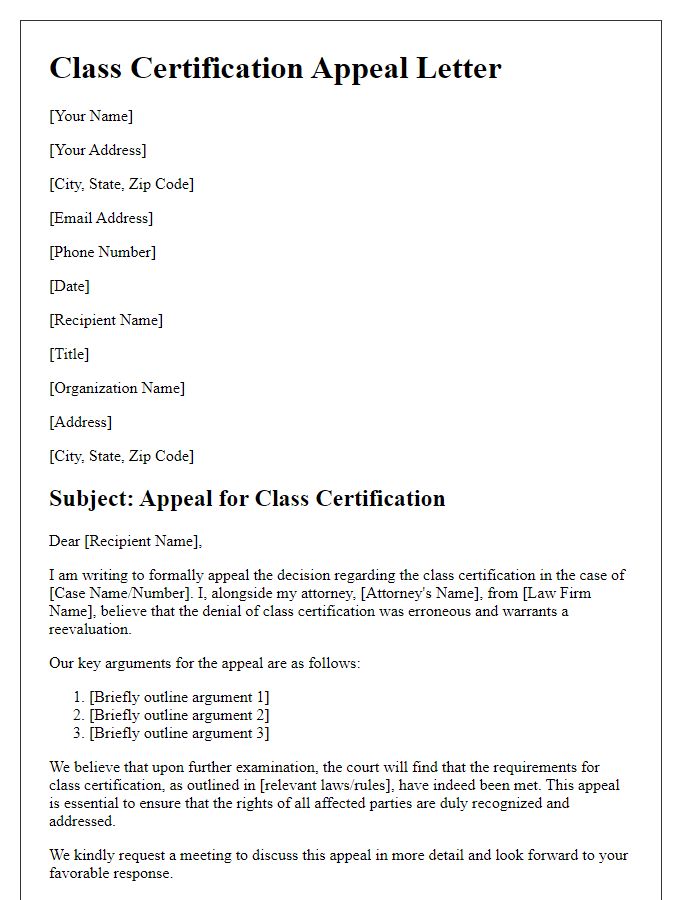

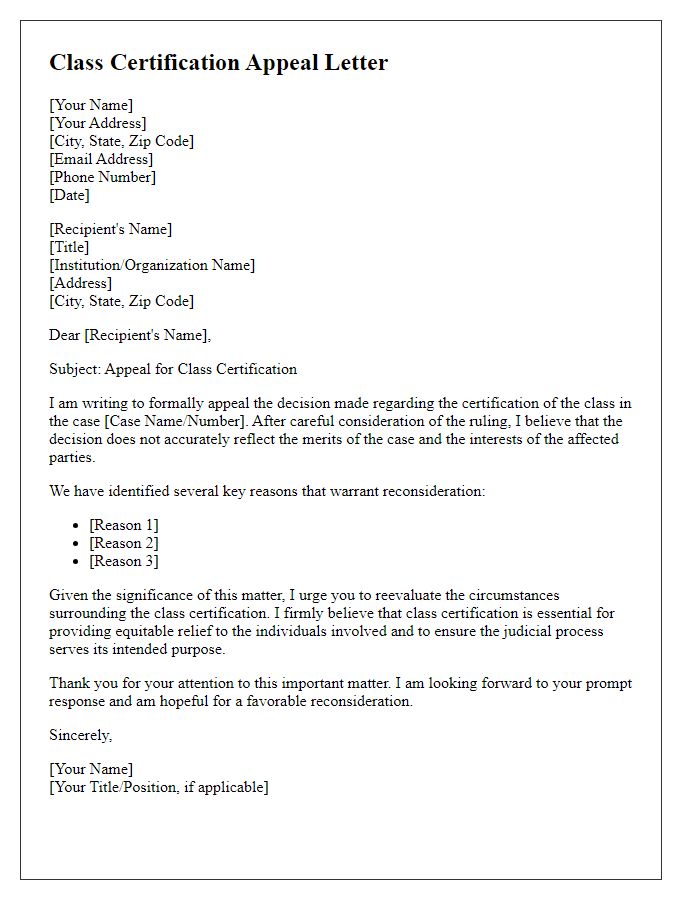
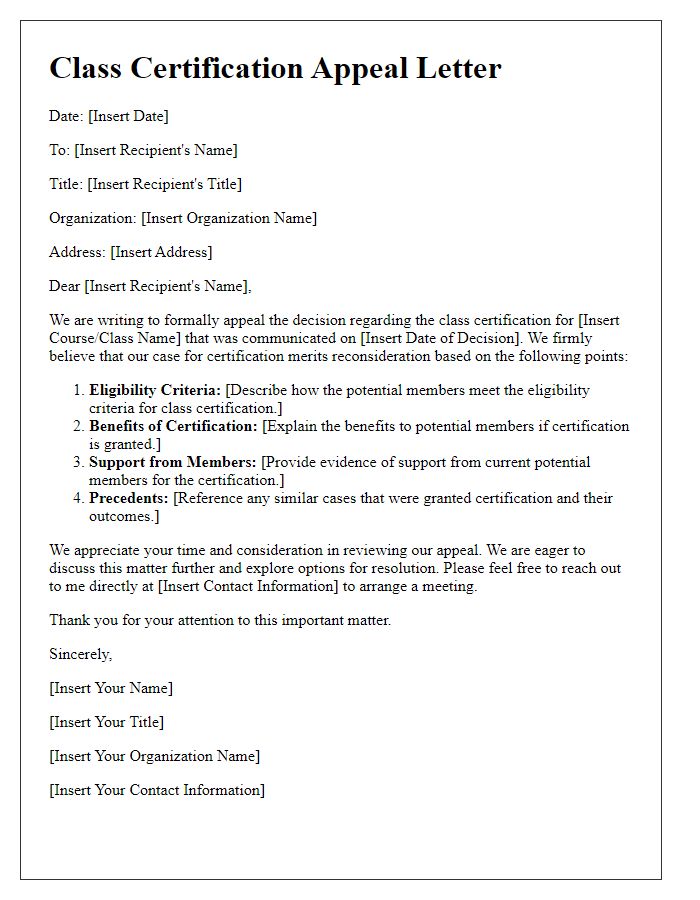
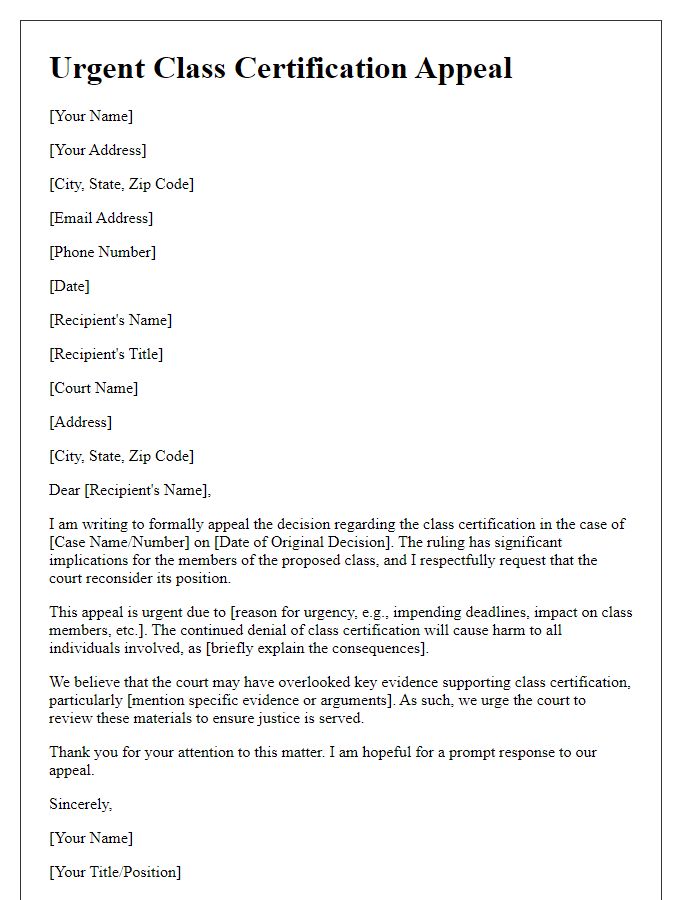
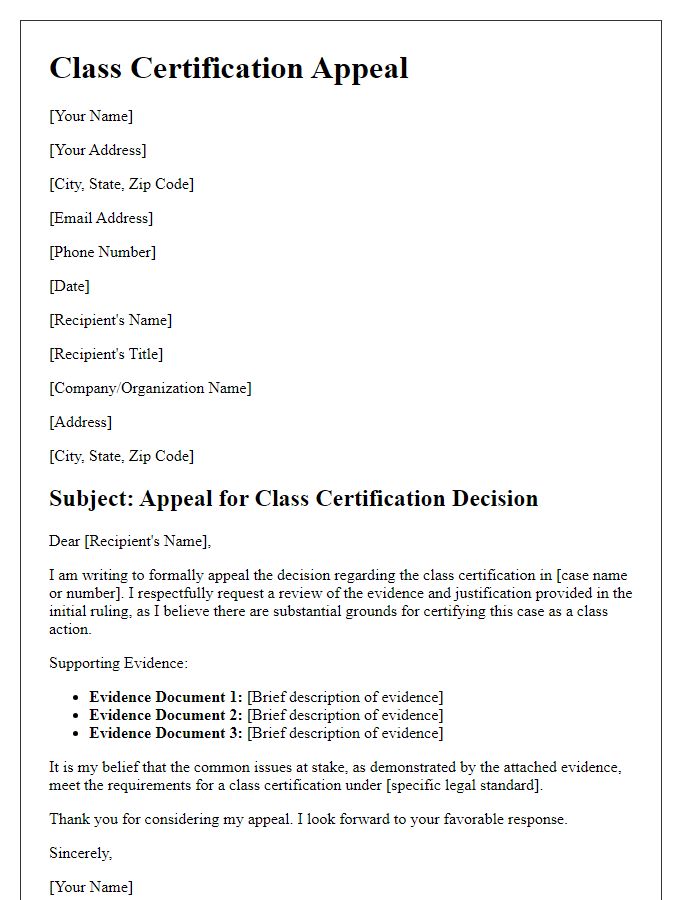
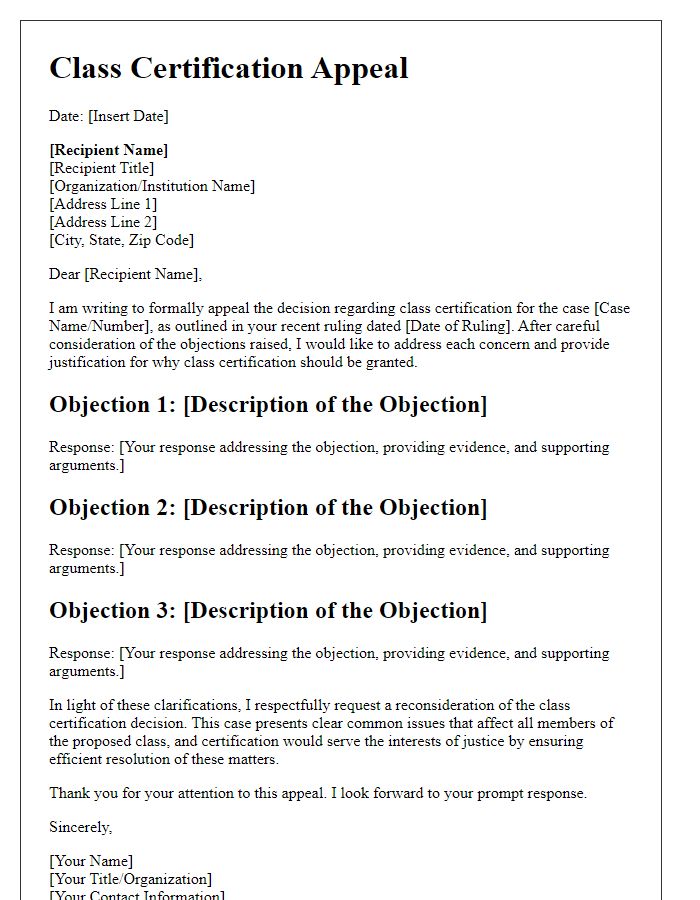
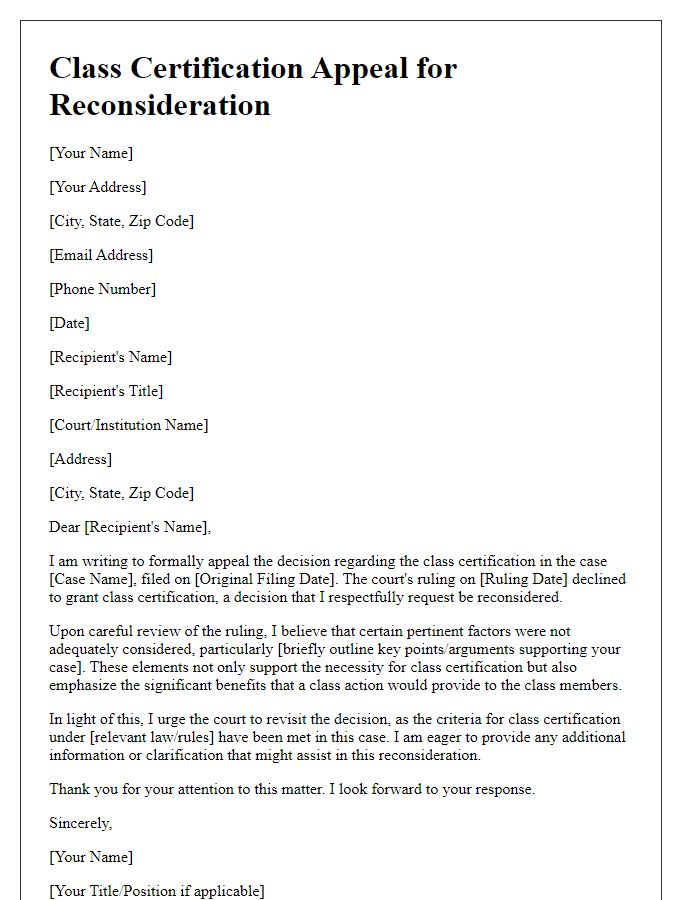
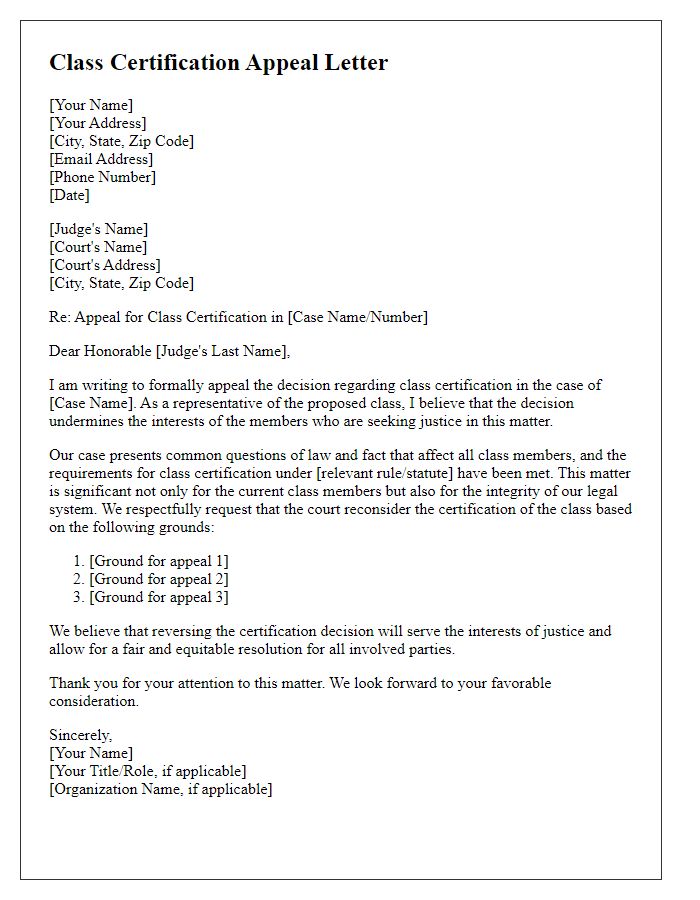
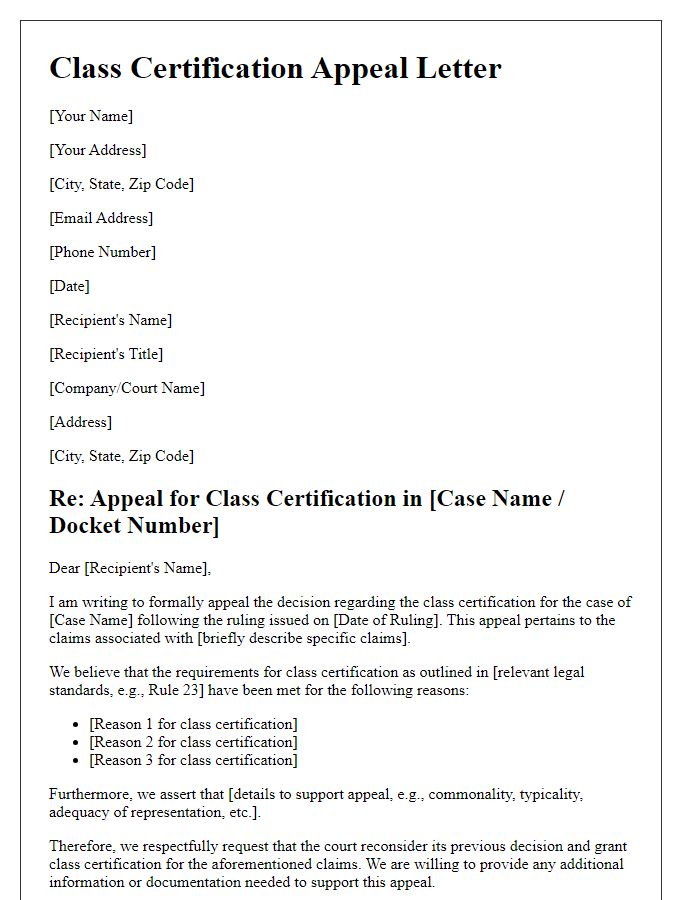
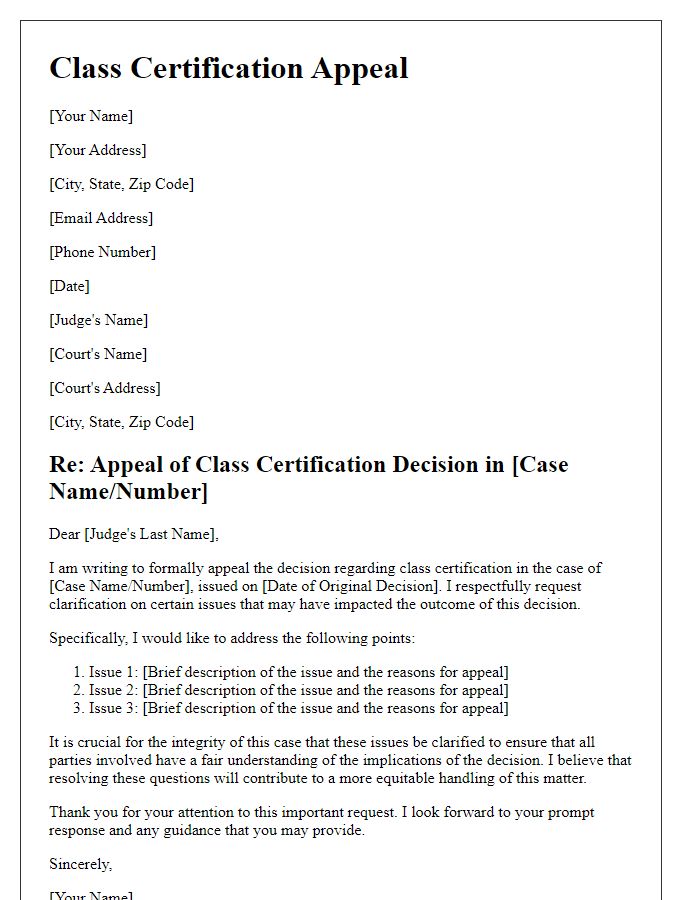


Comments